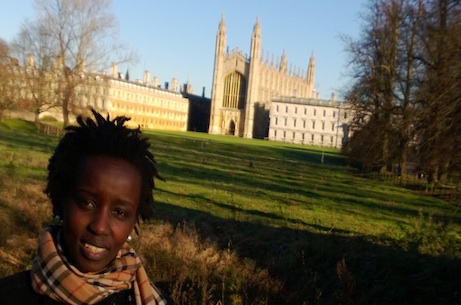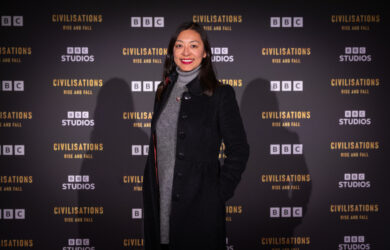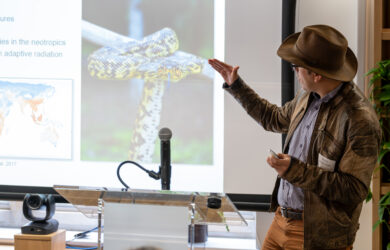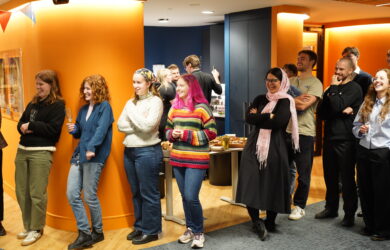
Njoki Wamai talks about her road from student activist to human rights campaigner.
Njoki Wamai is on a mission to ensure women’s voices are heard in peace mediation processes.
She became interested in the subject following research on women’s experiences of the mediation process that ensued after the contested Kenyan election in 2007. Women had not featured in previous research on the Kenyan mediation process, she says.
“I interviewed women who had participated and wrote a paper with a colleague I worked with the Centre for Humanitarian Dialogue, an organisation specialising in improving mediation. The UN wanted to include women in the peace process. Our argument in the paper was that it is not enough to include women in the peace process; different ways needed to be found to engage them. Many of the women were representing political parties and not speaking about the experience of women on the ground,” she says.
Fortunately, Graca Machel, Mozambique’s former education minister and a strong advocate for the rights of southern African women and children [whom Njoki interviewed] was involved in the process and promoted the importance of listening to women’s voices.
Njoki [2012] will be following up on this initial research for her PhD in Politics and International Studies which will trace the long-term impact of external mediation processes on local politics in Kenya.
“The cost of mediation is much less than peacekeeping missions or worse still full-blown war. I want to look at the five years between 2008 and 2013 in Kenya and to see how the mediation process has had an impact on reconciliation at the local level,” she says. “The aim is to inform mediators about how to improve mediation processes while building a sustainable policy which takes women’s issues on board. These issues are normally overlooked.”
Women’s rights
Njoki has had an interest in women’s rights since she started her university career, but her focus on human rights came much earlier in her life and was inspired by her uncle Wang’ondu Kariuki, a leading human rights lawyer who was imprisoned for his activism during former President Daniel arap Moi’s repressive regime. He encouraged Njoki to follow in his footsteps.
“I wanted to be like him. He instilled in me the need to serve others and a passion for social justice. He had the kind of career I wanted,” she says. Sadly, he died in 2000, the year Njoki started university. She had wanted to study law like he had done and become a human rights lawyer, but just missed getting the marks needed to do the course so she settled for her second choice, food science and technology at the University of Nairobi, becoming one of the first people in her family to go to university.
During her studies she started acting in the national theatre in Nairobi after realising at high school that she had a talent for theatre and became involved in student activism for women’s rights.
“There were so few women in sciences so I started campaigning about everything from how to get more women admitted to study science to improving the social amenities for women, such as sports facilities. Women were like spectators at the College rather than active participants,” she says.
When she graduated she was in a quandary about what to do next. She knew she loved activism and she really wanted to study gender issues, but she needed a job.
Unemployment was high and it took her several months to find a job as a quality controller in a company which exported vegetables to large western supermarkets. Many of the women working there were casual labourers and the activist in her led her to raise issues about their health and conditions in management meetings. . Although she did help to secure small improvements in the workers’ conditions, she realised the companies’ commitment to making profit at any cost was not a good fit with her own values and she decided to return to activism.
She did a series of small jobs, supported by her family, and got more involved in youth activism which she discovered she had a flair for. The Government was drawing up a national youth policy at the time and Njoki took part in a youth conference which led to an invitation to join the Kenya National Steering Committee on Youth Policy. She was appointed as a a full-time volunteer by the new Ministry of Youth Affairs to work with development partners on implementing the National Youth Policy and develop a Youth Employment Policy.
The job lasted a year and she then applied to do a postgraduate degree in gender and development at the University of Nairobi. “It was so much fun,” she says. “It was basically what I had been doing all my life, but from a more academic perspective.”
While she was studying she did an internship at Amnesty International’s(AI) Kenya office with Miriam Kahiga, the then head of the Kenya office who mentored her into human rights work. She worked on various AI campaigns and participated in writing the annual AI report for Kenya.
That led to a job in the Kenyan Human Rights Commission as a programme associate in charge of Coast Province where her responsibility was to work with communities to mainstream human rights . The region had challenges in implementing labour laws that were human rights compliant and a big sex tourism industry along the Coast that exploited young girls. Together with her colleagues she lobbied members of Parliament to pass and implement labour laws and strengthen implementation of the Sexual Offences Act and the Children’s Act both nationally and at an international level. “It was the most fulfilling job I have ever had,” she says. It lasted a year and a half.
Peace and security
During that time she travelled abroad and met other human rights activists like herself from the global south. She also won a Peace and Security Fellowship for African Women, a joint initiative of King’s College London and the University of Nairobi, to do a research fellowship at the African Leadership Centre in London for six months together with an internship in Geneva , New York and Kenya.
She credits her work in the peace and security field to two women who have mentored her over the years since she met them – Dr ‘Funmi Olonisakin, director of King’s College London African Leadership Centre, and Zeedah Meierhofer-Mangeli, the founder and Director of Resource Centre for Girls and Women and the Meeting Place and Resource Centre Women in Zurich.
Through the research she conducted on how Kenyan women had participated in the mediation process following the contested 2007 general election the linkages between women rights, peace and security became apparent and spurred her to look for opportunities to do further studies in this area.
Njoki was then awarded a Peace, Security and Development scholarship for African scholars through the Africa Leadership Centre to study a master’s in conflict security and development at King’s College, London.
After successfully completing the fellowship programme she joined the University of Ghana’s Institute of African Studies where she worked with leading Ghanaian academics as a teaching assistant while developing new research programmes. She says: “That experience helped me appreciate the political and socio-cultural diversities and commonalities in different African countries and among African people.”
While in Ghana she also travelled in the West African sub-region visiting Togo, Burkina Faso, Mali and Senegal.
After this, she was keen to further her research skills in the area of peace and security and in 2011 while in Ghana she learnt about the Gates Cambridge Scholarship. It seemed like a good fit for her passion for change so she applied and was accepted.
In the meantime, she continued to write articles, commentaries and research papers on a variety of African peace and security issues. Most recently, she has written on the African Union’s mediation efforts in Kenya and Libya. She hopes her PhD will open up new opportunities to build mediation policies which bring sustainable peace.












